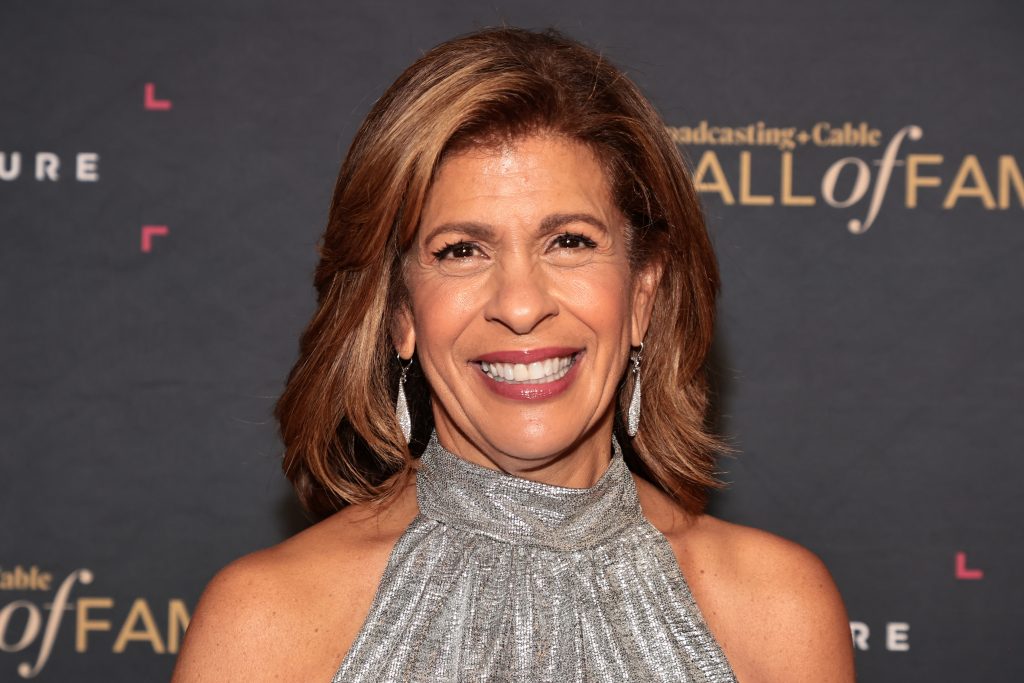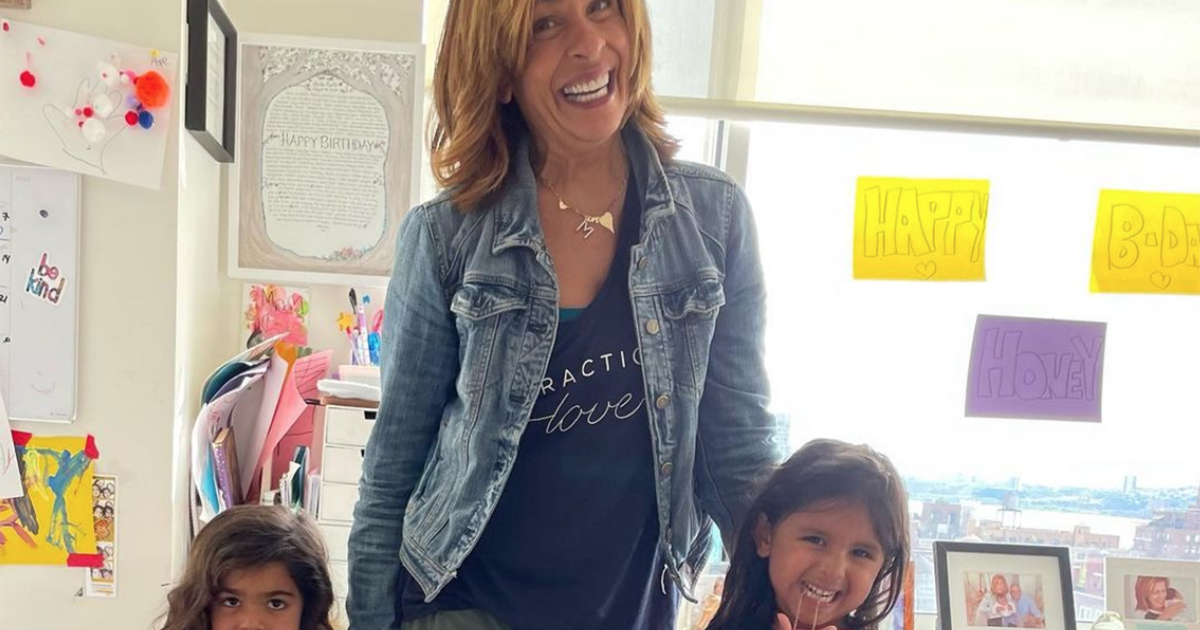How Cancer Treatment Can Affect Fertility
- Hoda Kotb, beloved co-host of TODAY with Hoda & Jenna and breast cancer survivor, recently shared to social media a sweet moment with her daughters.
- Hoda was diagnosed with breast cancer at 43, and she was devastated when her oncologist explained the realities of her fertility after breast cancer treatment she most likely wouldn’t be able to have her own children. So, she adopted!
- One common treatment for breast cancer is chemotherapy, and some types of chemotherapy can destroy eggs in a woman's ovaries. This can make it impossible or difficult to get pregnant later on.
The 57-year-old talk show host who lives in New York City, was pictured playing dress up with her two daughters, Haley Joy, 5, and Hope Catherine, 3.
Read MoreView this post on Instagram
The girls appear to be wearing their mother's clothes, with their pant legs and sleeves rolled up a few times. (So cute!)
Hoda co-parents Haley and Hope with her ex-fiancé, Joel Schiffman, 64. They adopted Haley in February 2017 and Hope in April 2019.
The couple got engaged in November 2019 after six years together, but in January of this year, they called off their engagement. She's now slowly working her way back into the dating scene.
Hoda Kotb’s Breast Cancer Battle
In February 2007, at the age of 43, Hoda Kotb was diagnosed with breast cancer. The diagnosis came after doctors discovered lumps in her breast during a routine exam.
After receiving her diagnosis, Hoda consulted six separate doctors to decide which treatment plan was the best fit for her. In the end, she had a mastectomy and reconstruction surgery, followed by five years of taking selective estrogen receptor modulator (SERM) drug tamoxifen (Nolvadex). She was later declared in remission.
However, Hoda was devastated when her oncologist explained the realities of her fertility after breast cancer treatment she most likely wouldn’t be able to have her own children. But like many other cancer survivors, she found her own way to parenthood.

During a recent conversation with Good Housekeeping, Hoda opened up about her fertility struggles after her battle with breast cancer.
"I remember that my oncologist called, and we were talking about freezing my eggs," Hoda said. "She basically said that given my age and (my breast cancer treatment), it was pretty close to a dead-end."
Her reaction was, understandably, filled with sorrow. And at that moment, she doubted she would ever reach her goal of becoming a mother.
"I was in my room, and I just sobbed. I thought, 'Well, that's that, isn't it?,'" Hoda said. "Like, you almost blame yourself. 'Why didn't I do this? Why didn't I do that?' So, I just pushed it away because the reality seemed impossible to bear.”
"I don't think I would've adopted if it hadn't been for Joel," she said of her ex-fiancé. "Having a stable relationship in that moment was really important. Once that fell into place, it didn't seem as scary to me."
How Cancer Treatment Can Affect Fertility
One common treatment for breast cancer is chemotherapy, and some types of chemotherapy can destroy eggs in a woman's ovaries. This can make it impossible or difficult to get pregnant later on. Whether or not chemotherapy makes you infertile depends on the type of drug and the woman's age, since egg supply decreases with age.
"The risk is greater the older you are," Dr. Jaime Knopman, a board-certified reproductive endocrinologist with years of experience treating couples and individuals experiencing infertility, previously told SurvivorNet.
"If you're 39 and you get chemo that's toxic to the ovaries, it's most likely to make you menopausal," she added. "But, if you're 29, your ovaries may recover because they have a higher baseline supply." (Hoda Kotb was 43 when she was diagnosed with breast cancer.)
Radiation to the pelvis can destroy eggs; it can damage the uterus, too. Surgery on a woman's ovaries or uterus can hurt fertility, as well.
If you’re having a treatment that includes infertility as a possible side effect, your doctor will not be able to tell you for sure whether you will have this side effect. That is why you should discuss your options for fertility preservation before starting treatment.
Freezing Eggs or Embryos: What Should I Do?
Research shows that women who have fertility preservation prior to breast cancer treatment, in particular, are more than twice as likely to give birth after treatment than those who do not take fertility-preserving measures, such as freezing eggs or embryos.
When freezing eggs or embryos is not an option, doctors may try these less common approaches:
- Ovarian tissue freezing, an experimental approach for girls who have not yet reached puberty and do not have mature eggs, or for women who must begin treatment right away and do not have time to harvest eggs.
- Ovarian suppression to prevent the eggs from maturing so that they cannot be damaged during treatment.
- Ovarian transposition, for women getting radiation to the pelvis, to move the ovaries out of the line of treatment.
Learn more about SurvivorNet's rigorous medical review process.

